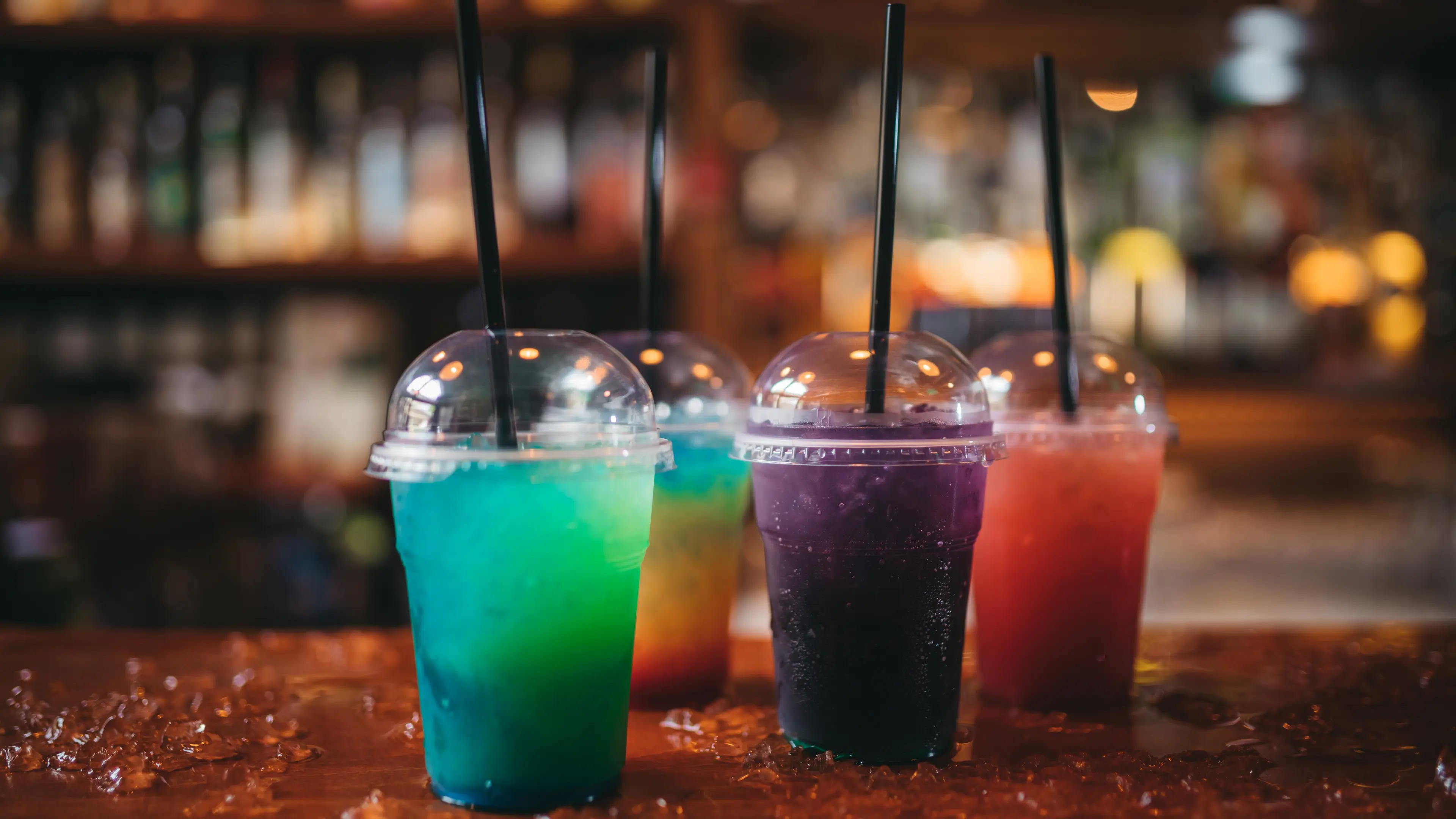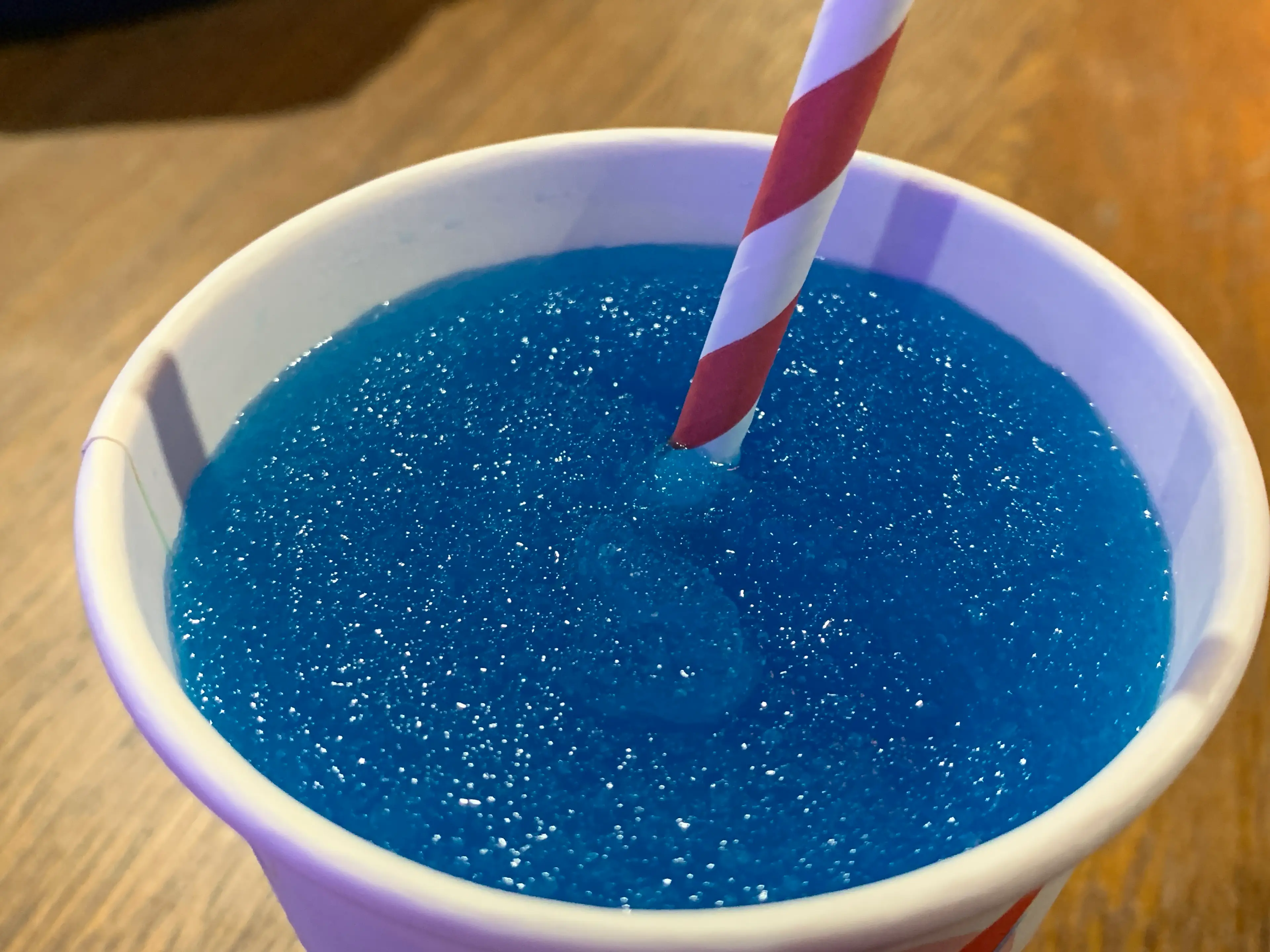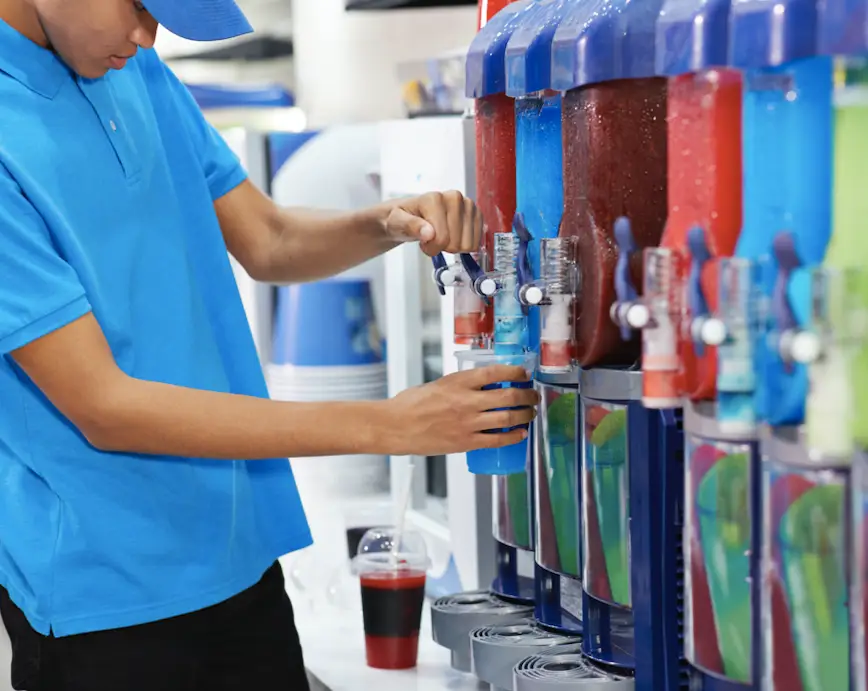
Slushies might seem like the perfect way to cool down and keep the kids happy on a hot day but they come with huge health risks, according to the experts.
There have been nine confirmed cases of glycerol intoxication in young children requiring hospitalisation over the past three years in the UK, with seven additional potential cases reported in the media.
'Very high' levels of exposure to the liquid compound glycerol – which typically occurs when a child consumes several slushies in a short space of time – can cause shock, very low blood sugar levels and loss of consciousness, the Food Standards Agency (FSA) explained.
The watchdog has warned that children under the age of seven should not drink slush ice drinks containing a specific type of sweetener because they can pose a serious risk.
Advert
And even for older kids aged seven to 10, the number of drinks consumed should be limited to no more than 350ml – roughly the amount of a fizzy drink can – a day.

The FSA advised parents to ask sellers if drinks contain glycerol and review product labels when selling these items.
It also said customers should avoid products if they aren't sure about ingredients and seek medical advice if a child develops symptoms.
And it's not just ready-made slushies available in corner shops and the like, the FSA warned against slush pouches and home kits containing glycerol slush concentrates. The watchdog has asked shops to stop offering free refills to children aged under 10.
It has also reminded manufacturers of slush ice drinks to use only the minimum amount of glycerol necessary to achieve the frozen effect.
Glycerol intoxication symptoms
Your children may complain of a mild headache or feel nauseous if experiencing glycerol intoxication but other more serious symptoms can occur, including low blood sugar, leading to confusion, dizziness, and even loss of consciousness.
They can experience shock which can occur due to the severe drop in blood sugar and other metabolic disturbances, according to the BMJ Group.
What to do if a child become unwell
If a child becomes unwell with headaches, nausea or vomiting soon after consuming slush ice drinks, the caregiver should immediately give them drinks or food containing sugar and call 111 for medical advice.
Urgent medical attention should be sought by calling 999 if a child becomes drowsy or confused.

The FSA shared the advice ahead of an expected seasonal spike in slush ice drink sales at children’s indoor play areas, leisure facilities and outdoor events over the summer holidays.
FSA chief scientific adviser Professor Robin May said: “As we head into the summer holidays, we want parents to be aware of the potential risks associated with slush ice drinks containing glycerol.
“While these drinks may seem harmless and side-effects are generally mild, they can, especially when consumed in large quantities over a short time, pose serious health risks to young children.
“That’s why we’re recommending that children under seven should not consume these drinks at all, and children aged seven to 10 should have no more than one 350ml serving.
“We’re working closely with industry to ensure appropriate warnings are in place wherever these drinks are sold, but in the meantime we are asking parents and carers to take extra care when buying drinks for young children, particularly during warmer months when consumption of slushies typically increases.”
